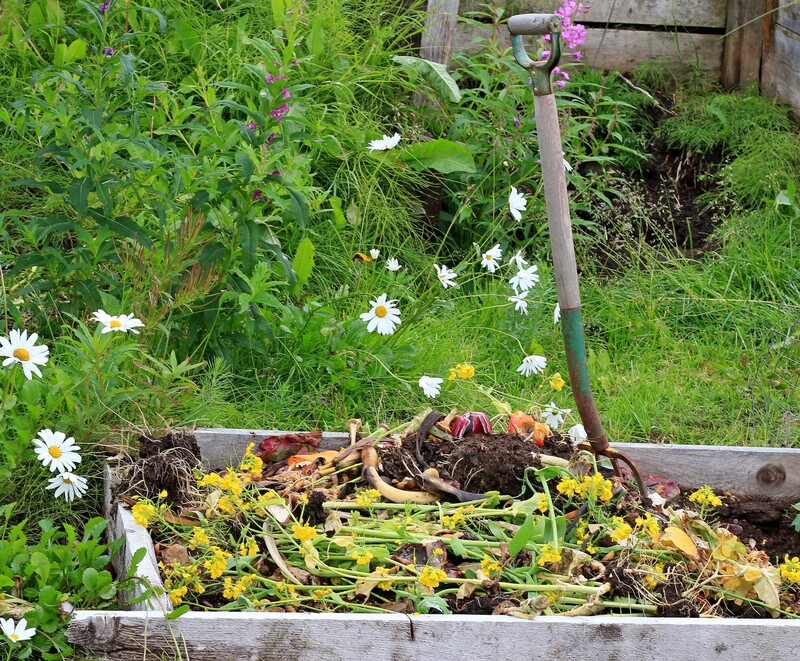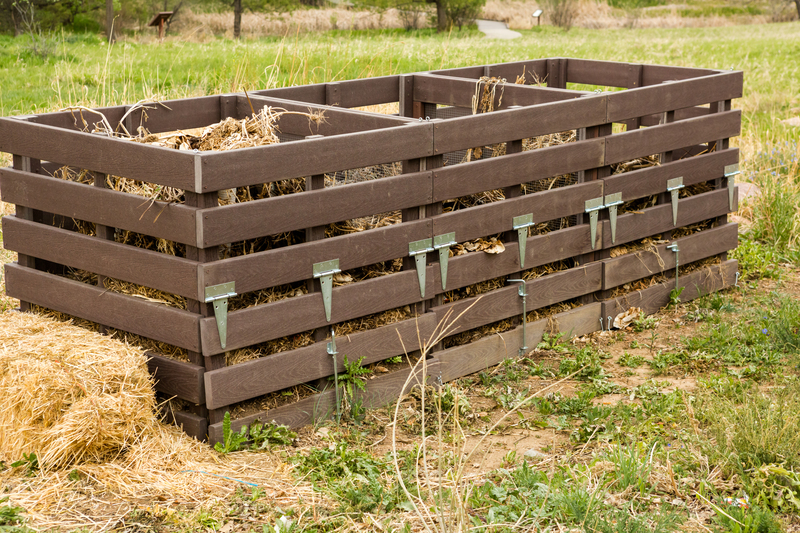Rubbish Removal Bags Versus Skips - Which is Right for Your Clean-Up Project
When tackling a significant clean-up project around the home, garden, or workplace, one critical decision to make is how to properly dispose of unwanted materials and waste. Two of the most popular options available are rubbish removal bags and traditional skip bins. Both methods serve the main purpose of efficient waste management, but which one is truly right for your specific project?
This comprehensive guide will help you compare rubbish bags for waste removal and skip hire solutions, weigh their pros and cons, and ultimately help you decide which option perfectly matches your needs.
What Are Rubbish Removal Bags?
Rubbish removal bags, sometimes referred to as waste collection bags, skip bags, or rubbish sacks, are heavy-duty, large-capacity bags made from tough woven polypropylene or similar materials. Designed to handle various types of household, garden, or light commercial waste, they are easy to store, simple to fill, and convenient for both small and mid-sized projects. After filling the bag, a collection service picks it up, disposing of your waste properly.
- Sizes: Typically, these rubbish bags come in mini (1 cubic yard), medium (1.5 - 2 cubic yards), and large (up to 4 cubic yards) sizes.
- Materials: Robust construction to handle heavy and sharp debris such as bricks, tiles, soil, or green waste.
- Collection: Collected by specialist vehicles using craned arms or similar technology.

What Are Skip Bins?
Skip bins, commonly called skips, are metal containers designed for holding and transporting considerable quantities of waste. Skips are typically found on building sites, during large home renovations, and at commercial locations. You hire a skip for a certain period, fill it on your premises, and when done, a truck removes the skip and disposes of the contents at a recycling or landfill facility.
- Sizes: Available in a wide range from mini (2-3 cubic yards)
- Standard skips: 6-8 cubic yards, ideal for larger domestic projects
- Builders' skips: Up to 12 - 20 cubic yards for major renovations and commercial jobs
- Construction: Solid metal, lockable lids optional
- Hardcore: Suitable for heavy, mixed, and even hazardous waste (with specific arrangements)
Comparing Rubbish Removal Bags Vs. Skips: Key Considerations
To help you make the best choice for your waste disposal project, let's compare rubbish bags for disposal and skip bins against crucial criteria:
1. Project Size and Waste Volume
- Rubbish removal bags are ideal for smaller clean-ups such as attic clear-outs, garden tidying, minor renovation debris, or a small room's worth of clutter. Typically, they accommodate up to 1.5 tonnes and 4 cubic yards of waste.
- Skips are a better fit for larger jobs--think full house renovations, large-scale garden landscaping, building rubble, or substantial business clearances. Capable of holding much higher amounts (up to 20 cubic yards or sometimes more), skips suit projects generating significant bulk.
2. Space and Access Constraints
- Skip bags win in tight spaces. Folded flat before use, they can be stored almost anywhere and carried into locations skips can't reach (back gardens, narrow alleys, upper apartment floors).
- Skips require sufficient, firm, accessible ground for the delivery truck. Parking permits are sometimes needed for on-street placement, introducing extra costs and planning.
3. Types of Rubbish Allowed
- Rubbish bags can take most non-hazardous domestic, garden, or light building waste, but you cannot place hazardous materials such as asbestos, chemicals, or tyres.
- Skips allow a wider variety of waste types including heavier, bulkier loads and (with special arrangements) limited quantities of hazardous items.
4. Cost Effectiveness
- Rubbish removal bags are generally cheaper for small volumes of waste. You pay only for the bag (usually ?20-?40) and the collection fee (from ?70-?120+ depending on location and bag size).
- Skips cost more overall, with prices starting around ?130 for a mini skip and rising significantly for larger capacities and longer hire durations. Extra fees may apply for permits and restricted waste.
5. Speed and Flexibility
- Bagged rubbish removal is flexible--fill your bag in your own time and call for collection when ready. No strict hire windows.
- Skips often have limited rental periods (a week or two is typical). Early or extended pick-up may incur extra charges.
6. Environmental Impact
- Both systems work with licensed waste handlers aiming for responsible recycling and minimal landfill use. Skip providers may offer higher recycling rates if segregating waste.
- Rubbish bags for removal are collected by similar contractors; environmental performance can depend on your local provider.
Advantages of Rubbish Removal Bags
- Lightweight & Portable: Skip bags arrive folded--store them in a cupboard or car boot until needed.
- No Permit Required: Unlike skips, rubbish bags do not require council permits for placement on private property.
- Flexible Usage: Take your time filling the bag; there's no 'hire period' counting down.
- Easy Positioning: Place the bag as close as possible to the rubbish source--above ground, beside a driveway, or even in a garage.
- Perfect for Small to Medium Projects: Ideal for spring cleaning, redecorating, decluttering, or small building jobs.
- Lower Price Point: Bag purchase and collection often cost less than hiring a small skip.
- Book Collection Online: Simple online collection booking whenever you're done.
Advantages of Skip Hire
- Huge Capacities: Accommodate bulkier, heavier loads with ease--no need to separate items.
- Versatile for All Waste: Handle most non-hazardous household, garden, and construction waste in one container.
- Multi-User Friendly: Excellent for shared renovations, neighbourhood clean-ups, or commercial site use.
- Speed of Removal: Fill up fast during intensive projects and arrange for immediate pick-up.
- Site Security: Options for lockable skips prevent fly-tipping and unauthorised dumping.
Potential Disadvantages
Rubbish Removal Bags
- Weight Limits: Overloading can result in refused collection or additional charges--always check the maximum weight (typically 1-1.5 tonnes for the largest bags).
- Collection Access: The bag must be reachable by a collection vehicle's crane, so plan placement carefully.
- Smaller Volume: Large, bulky items may not fit into the bag--sofas, kitchen units, or bath tubs can be a squeeze.
- Waste Restrictions: No hazardous materials, minimal soil/hardcore in most cases.
Skip Hire
- Permits May Be Needed: If placing the skip on a public road, a local council permit is essential, adding time and cost.
- Access Issues: Delivery trucks require wide, stable access. Narrow lanes or overhanging branches may be a problem.
- Expensive for Small Jobs: If you are disposing of just a few items, skip hire may be overkill.
- Time Constraints: Rental is for a set period--prolonged use incurs extra fees.
- Environmental Impact: Large skips tempting fly-tipping, and lack of thought may mix recyclable and non-recyclable materials.
Which is Right for You? Making the Decision
When to Choose Rubbish Removal Bags:
- Your project is small to medium in scale
- You're dealing mainly with domestic or garden waste
- There's limited space for a bulky skip
- You want the flexibility to fill your rubbish at your own pace
- Lower up-front cost and no council permit requirements matter to you
When to Select a Skip Bin:
- The volume of waste is large or very heavy (e.g., house renovations, demolition, rubblish, garden clear-outs)
- You want to dispose of everything in one go, quickly and efficiently
- There is space on driveways or construction sites for a skip lorry
- Site access is good and you may need to secure the waste container
Environmental Considerations in Rubbish Removal
It's important to consider the environmental impact of your rubbish removal method. Reputable providers for both skip bins and bagged waste disposal will ensure maximum recycling and proper handling of disallowed materials. When booking, ask about:
- Percentage of waste recycled vs. sent to landfill.
- Segregation of materials (wood, metal, plasterboard, green waste).
- Documentation and compliance for hazardous waste (skip bins only, with permits).

Common Frequently Asked Questions
Can I put everything in a rubbish removal bag?
No. Skip bags cannot accept hazardous materials like asbestos, chemicals, paint, batteries, or tyres. Most standard materials (old furniture, soil, green waste, bricks) are fine, but check specifics with your supplier.
How fast will my rubbish be collected?
Most rubbish collection bag services offer collection within 3-5 working days of booking. Skip bins are usually picked up at the end of the hire period or can be collected on request.
Do I need permission for a skip or rubbish bag?
No permit is needed for either when placed entirely on your private property. For skips on public roads, you need a council permit. Sometimes rules also apply to bags if on the street--check with your local authority.
Which is cheaper: bag or skip bin?
For smaller volumes up to 4 cubic yards, skip bags are typically more affordable. For larger or heavier loads, skips become better value.
Conclusion: The Right Rubbish Removal Solution Matters
Choosing between rubbish removal bags and skip bins is all about your project's size, your access constraints, your budget, and your preferred level of flexibility. Rubbish sacks for waste removal provide a modern, space-saving, and easy solution for most light-to-medium tasks. Skip hire shines for heavy-duty and high-volume jobs where strength, capacity, and quick clearance are needed.
For most domestic projects, rubbish removal bags are cost-efficient, easy to use, and environmentally friendly. For renovators and builders, or anyone clearing out major quantities of debris, skips are indispensable.
Understanding your unique needs is the key to choosing the right rubbish removal method and ensuring your clean-up project runs smoothly, efficiently, and legally.
If you're still unsure which to pick for your next clean-up, speak to your local waste removal experts. They'll help you make a well-informed decision--so your home, garden, or site is left tidy, clutter-free, and eco-friendly!